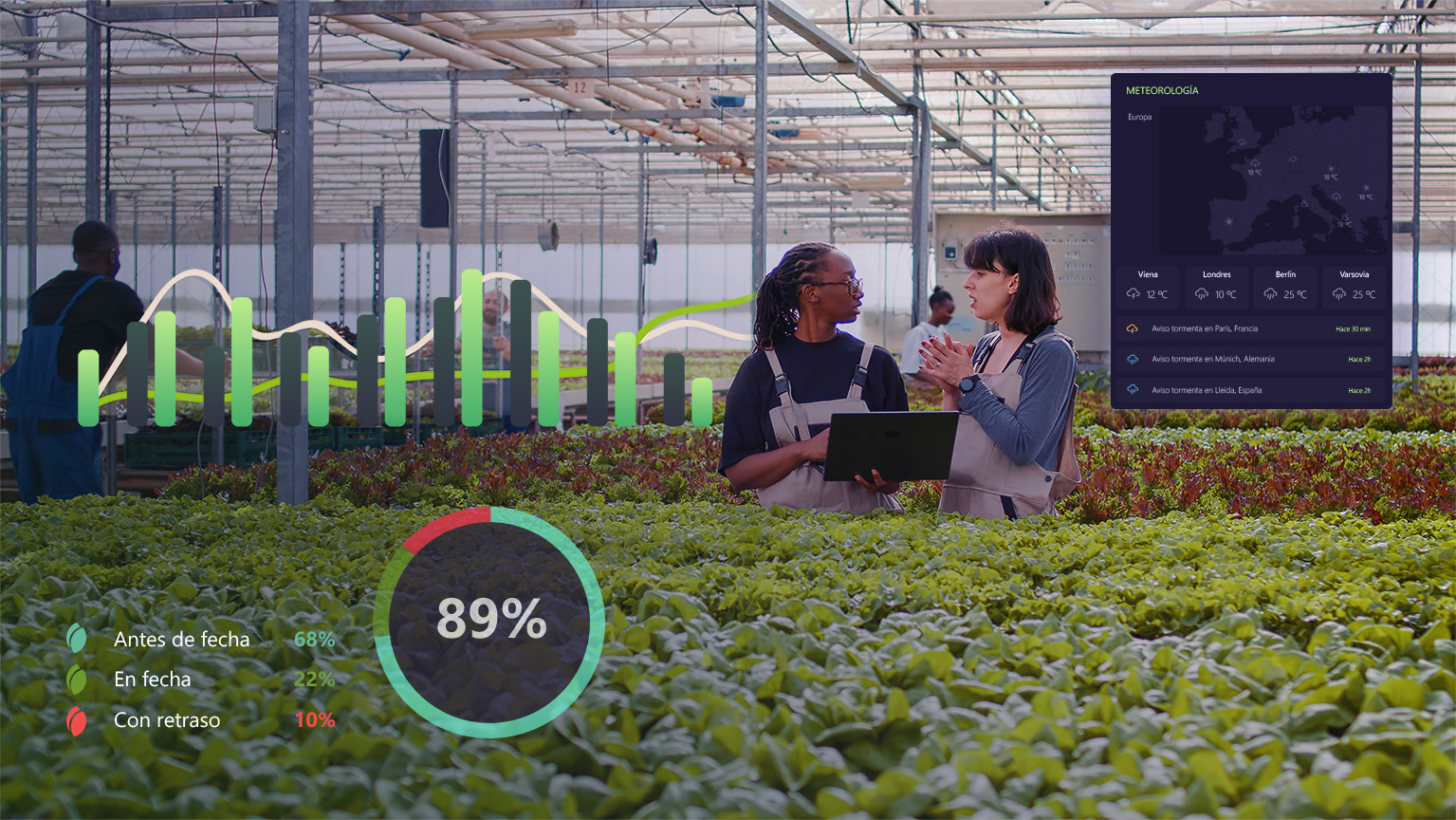Agrotech and the importance of data in agriculture

In the vast agricultural territories of Spain, a silent but powerful revolution is taking place: it is called Agrotech. This term, which fuses agriculture with technology, is radically changing the way food is grown, harvested and marketed in our country. But beyond autonomous tractors and spraying drones, Agrotech is also driving a wave of business digitalisation that is transforming the agricultural industry from top to bottom.
The Technological Revolution in the Spanish Countryside
From soil sensors that monitor moisture and nutrients to smart irrigation systems that optimise water use, technology is enabling Spanish farmers to produce more with fewer resources and minimise environmental impact.
One of the most exciting aspects of Agrotech is its potential to revolutionise the agricultural supply chain:
- Production
- Transformation
- Marketing
- Distribution
Thanks to the Internet of Things (IoT) and data analytics, farmers can track every movement of their produce, from planting to sale, ensuring quality and food safety. In addition, artificial intelligence is helping to predict and prevent plant diseases, thereby increasing yields and reducing losses.
Data as a pillar of Agrotech
The success of Agrotech lies not only in the adoption of new technologies, but also in the digitisation of agricultural businesses through the monitoring, management and visualisation of their data.
Firstly, monitoring allows farmers to collect real-time information on various agricultural variables, such as soil moisture, ambient temperature, nutrient levels and plant condition.
On the other hand, the large amount of data collected through monitoring needs to be organised and presented in a way that is understandable and useful for farmers, i.e. through dashboards. In this way, they can be able to efficiently store, process and manage large volumes of agricultural data and improve long-term decision making.

The call to action
In short, Agrotech and business digitalisation are more than just trends; they are the future of Spanish agriculture and data needs to be managed correctly for all these processes to work properly.
By harnessing the power of agricultural data, farmers can make more informed decisions, optimise available resources and increase the productivity and profitability of their farming operations, thus contributing to a more sustainable and resilient agriculture in the future. The Spanish countryside is calling for innovation – will we respond?



